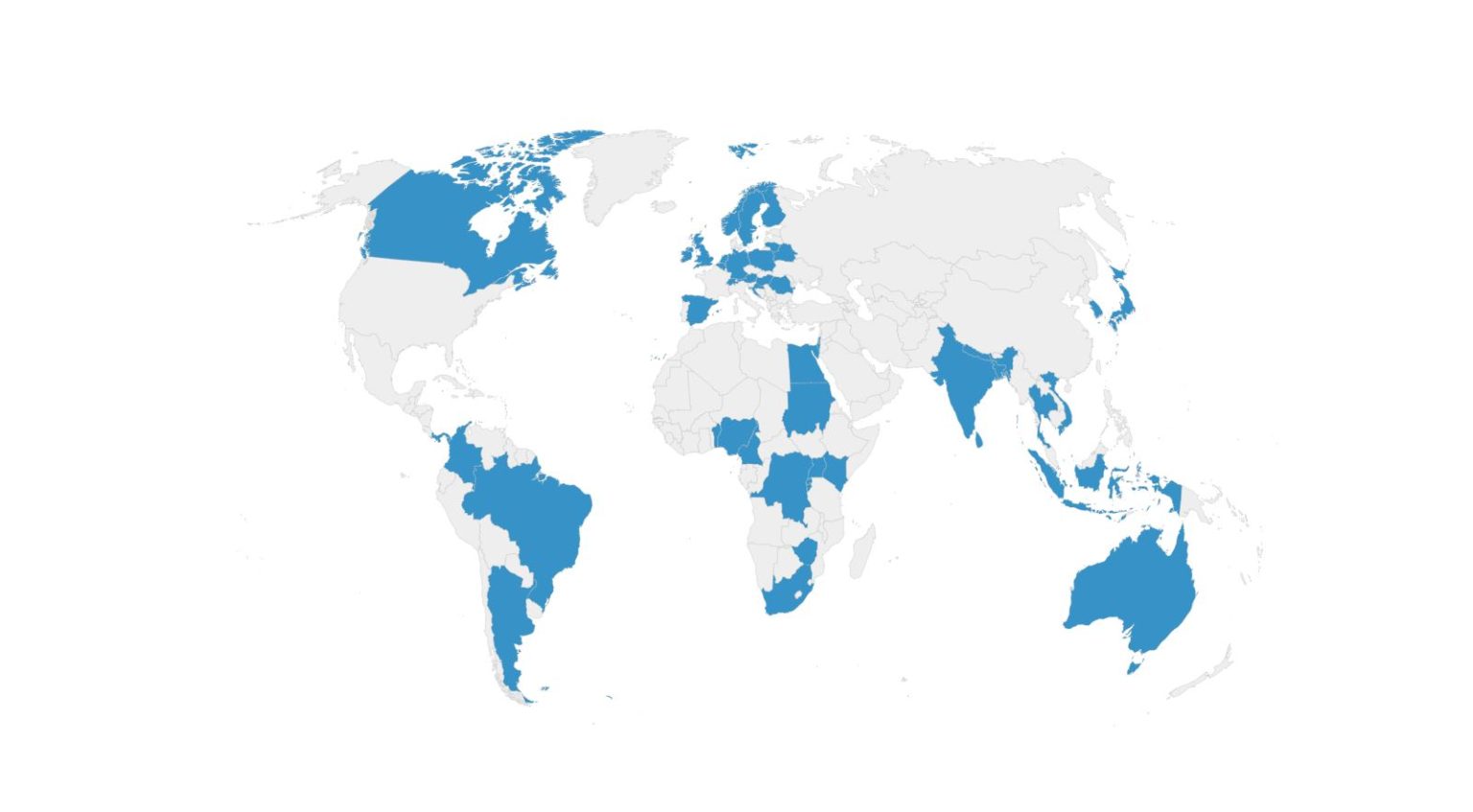The second online meeting of Young Academies from around the world took place on 30 September 2021. The meeting was the largest gathering of young academies so far, with more than 70 representatives from 50 young academies and initiatives (see here for a current list of young academies).
The GYA was represented by EC members Lahcen El Youssfi (Moulay Slimane University, Morocco) and Encieh Erfani (IASBS, Iran) as well as GYA Managing Director Beate Wagner and Senior Project Officer Anna-Maria Gramatté. Several more GYA members participated wearing their respective young academy hats. The meeting was again organised and facilitated by the GYA, and all Young Academies were invited to contribute to the meeting agenda beforehand.
Although only a few hours long, due to the online setting, the meeting offered a great opportunity for young academy representatives to exchange experiences as well as to discuss successful young academy activities and common challenges.
Encieh led a discussion on the role of young academies in a pandemic/post-pandemic world, with inputs from various corners of the world: GYA member Luciana Balboa from the Argentinian Young Academy, Rosemary Tonjock from the Cameroon Academy of Young Scientists, Erik van Sebille from the Dutch Young Academy, as well as GYA member Chandra Shekhar Sharma from the Indian National Young Academy of Science.
Two breakout sessions then focused on young academies’ challenges and on opportunities for collaboration. Questions about the role of young academies in each country, their contributions and ways to become more active, effective and visible were discussed, as were issues of funding and of collaborating with established science academies and other stakeholders.
Another issue of discussion was how young academies should and could tackle the post-pandemic world, and what were lessons learned. The COVID-19 pandemic has highlighted differences between the various world regions, but has also resulted in young academies being more engaged in (national) science and policy arenas.
Additionally, alternating between in-person and online meetings, or organising hybrid formats in the future was seen as one lesson learned from the past months. While meeting in person is sometimes necessary and also desirable for personal interaction and informal ideas generation, young academies could advocate for the advantages of online meetings in the future, e.g., less funding is needed, no visa or travel restrictions, travelling less contributes to sustainability goals, more people can attend, and research results can be spread more widely. Meeting online also has its challenges, e.g., poor internet connectivity and unstable electricity supply in parts of the world, effective follow-up needed, and good virtual platforms and tools are needed to effectively work together online.
Furthermore, participants heard a brief update on planning for the Worldwide Meeting of Young Academies in 2022, which will hopefully be an in-person meeting again, and which will be organised in collaboration with the InterAcademy Partnership, to strengthen connections and collaborations between the young and the established science academies the world over. A call will go out to all young academies in the coming weeks to participate in the Programme Organising Committee for this event.
The latest additions to the young academies network – the Argentinian Young Academy, the D. R. Congo Young Academy of Sciences, and the Romanian Young Academy – were also represented at the meeting. Representatives from the young academy initiatives from Colombia, Croatia, Ireland, and Panama also attended to learn about existing young academy models and structures, areas of young academy engagement and possible cooperation.
For any queries regarding the worldwide network of young academies, please contact Anna-Maria Gramatté at the GYA Office.
